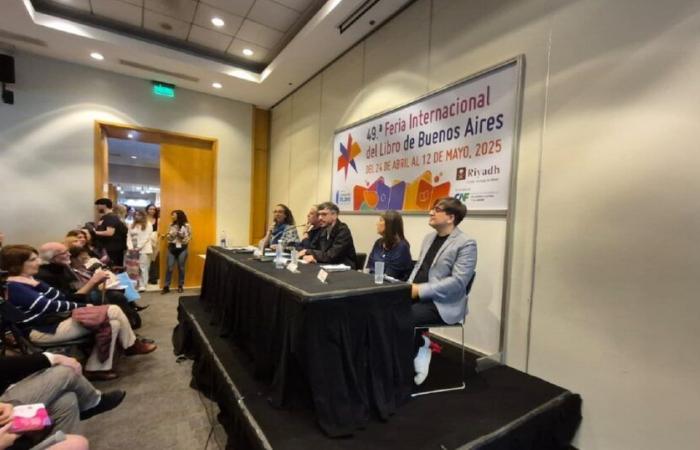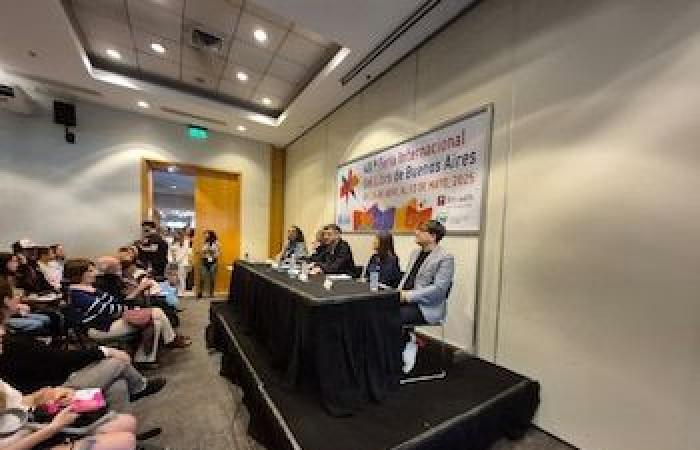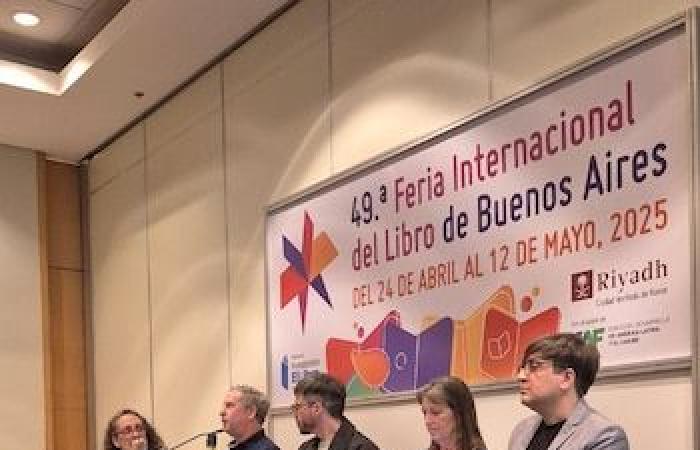Within the framework of the cycle Dialogue of writers and writers from Argentinathe Book of Buenos Aires Fair was yesterday the scene of a crossing of ideas between narrators and essayists on one of the themes that the contemporary cultural world is going through strongly: the emergence of artificial intelligence (AI) on creative processes and its possible impact on literature.
The table was titled Can an ia write with the depth of a human being or make literature? An open debate about what the algorithm is not capable And it was moderated by the journalist and editor Débora Campos.
The writers participated in the meeting Claudia Piñeiro, Guillermo Martínez, Enzo Maqueira and the philosopher Tomás Balmaceda. Far from technophobia, but also of naive enthusiasm, the panel proposed a critical reflection on the potential and limits of AI in the field of writing.
“That word ‘depth’ is immediately suspicious”he launched Guillermo Martínezin relation to the table title. The author of Imperceptible crimes He argued that there is a human criteria dispute even to determine what we consider deep in a text, and recalled that “The value or assignment of value to a work is the human, it is the human part”.
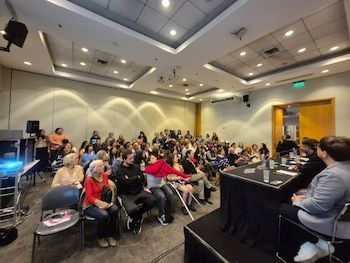
To address the phenomenon, Martínez proposed an analogy with the case of Deep Bluethe IBM supercomputer who beat the world chess champion Garry Kasparov in 1997. “Human beings stopped playing chess after that? No, on the contrary”he said, referring to the current boom of the game, even among young people who train with programs. From that logic, he added: “The great era brings artificial intelligence is the great era of edition”.
Enzo Maqueirafor his part, he stressed that “Literature has given plenty of signs that it is not going to get off the contest so easily” and questioned the idea that AI can replace quality literary production: “Literature will not die and will continue among us”. Even so, he warned that the threat is not less: “Artificial intelligence is the wet dream of publishers and capitalism in general”he sentenced, in reference to an industry that already begins to experiment with automation to reduce costs.
Maqueira also stressed the risks for cultural workers, as translators or illustrators, and said that AI “You can pretend that she has bleeding, who has loved, can even say ‘pain’ with the perfect voice of who has never cried”but it lacks a vital experience: “While we are dying, we will continue writing”he concluded.
Claudia Piñeiro He focused his speech on the way in which machines process language. It started from an analysis of the famous phrase “The unanimous night”of Borges, to ask if an AI would be able to generate an expression of that nature. “All process that Borges does to choose an adjective is impossible for artificial intelligence to do,” affirmed.
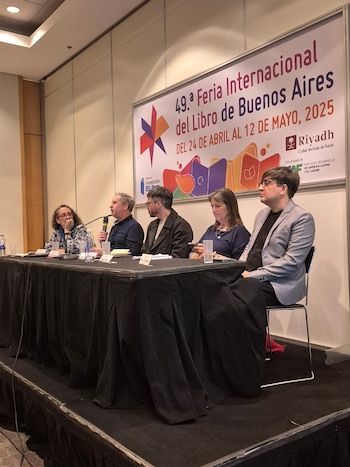
Relying on an idea of the French philosopher Éric Sadinadded: “There is some chance in the words we choose, and that chance is the one that cannot replicate artificial intelligence.”. Even so, he showed concern about other less poetic aspects of technological advancement: “I am more concerned about what is going to be from the world with artificial intelligence than if you can write literature”.
From a philosophical perspective, Tomás Balmaceda He argued that “These IAS can be good writers, but they cannot be good authors”. Returning to the legal and academic framework, he explained that neither scientific journals nor citation systems recognize the IAS as co -authors, and proposed a provocative metaphor: “Nobody puts as co -author to the Word corrector”. He also defended that “In principle I don’t think it’s an author. I think it’s a sophisticated Word corrector”.
Towards the end, Balmaceda introduced a distinction between author and writer: the first as a legal figure, the second as an executor of the text. In that sense, he warned on a possible scenario: platforms such as Amazon who receive hundreds of books generated by AI every day, or false tourism guides circulating with erroneous data. “We are discussing new things with old categories”he warned.
The debate, which combined data, anecdotes and literary references, made it clear that artificial intelligence raises urgent questions for cultural production. But also that, at least for now, human literature retains its uniqueness: that of making mistakes, doubting, suffering and writing as who has no other way out.

